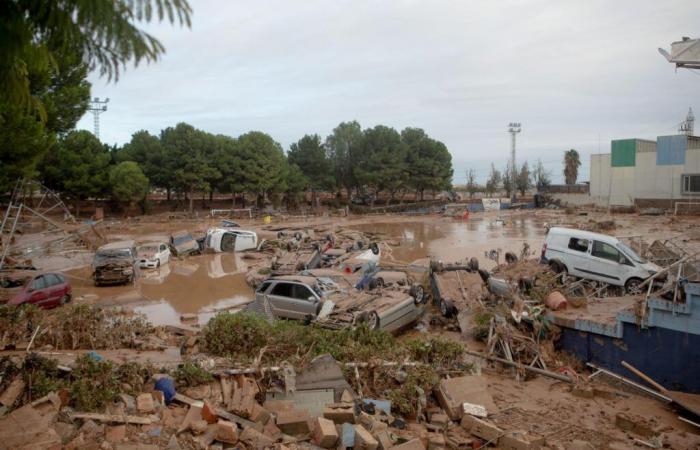Jose Olcina Asemad still has emotion in his voice. More than ten days after the floods which hit Valencia in Spain, this boss narrowly escaped the disaster which befell the industrial zone on the outskirts of the city where his small furniture manufacturing company is located. “I was coming home around 4:30 p.m., there was a line of cars in front of me. Some drivers started to turn around towards me when others advised them that the ravine overflowed, he says. Along with 13 other people, he had no choice but to take refuge in a society located high up, where he spent the night. “Today we are taking inventory, but 80% of the equipment seems affected”he explains, his feet planted in the mud that covers the ground.
Ensuring a return to activity or its continuity can be materially and psychologically long for workers. Near Valencia, Around 350,000 employees and 70,000 self-employed people were affected by these floods. “Many small businesses and industries are affected and simply cannot resume their activities or have their employees telework,” insists Salvador Navarro, president of the Valencian Community Business Confederation. At Valencia town hall, for example, of the 1,000 employees who were directly or indirectly affected by the disaster, around half were able to telework.
Faced with the emergency, the government has deployed subsidized technical unemployment mechanisms “due to force majeure”. Similar to those that were put in place during the pandemic, except that people will not have to “compensate” non-working days. While the tragedies linked to climate change are increasing, the impacts on workers are still managed urgently and not thought out structurally, in Spain as in France, where we are carefully observing the serious difficulties of the Valencian province. .
A climate risk regime
Having witnessed the floods in Pas-de-Calais in 2023, Perrine Mohr, CFDT Hauts-de-France general secretary, believes that we will have to begin thinking about climate risks and their management by the community. Although many companies have resorted to partial unemployment in this region, some employees have not been able to benefit from additional days to deal with the disaster. “We worked with the Ministry of the Civil Service and the prefects to ensure that workers obtained absence facilities, explains Perrine Mohr, this was accepted in the public. On the other hand, in the private sector, we encountered the silence of certain companies. »
You have 57.22% of this article left to read. The rest is reserved for subscribers.






